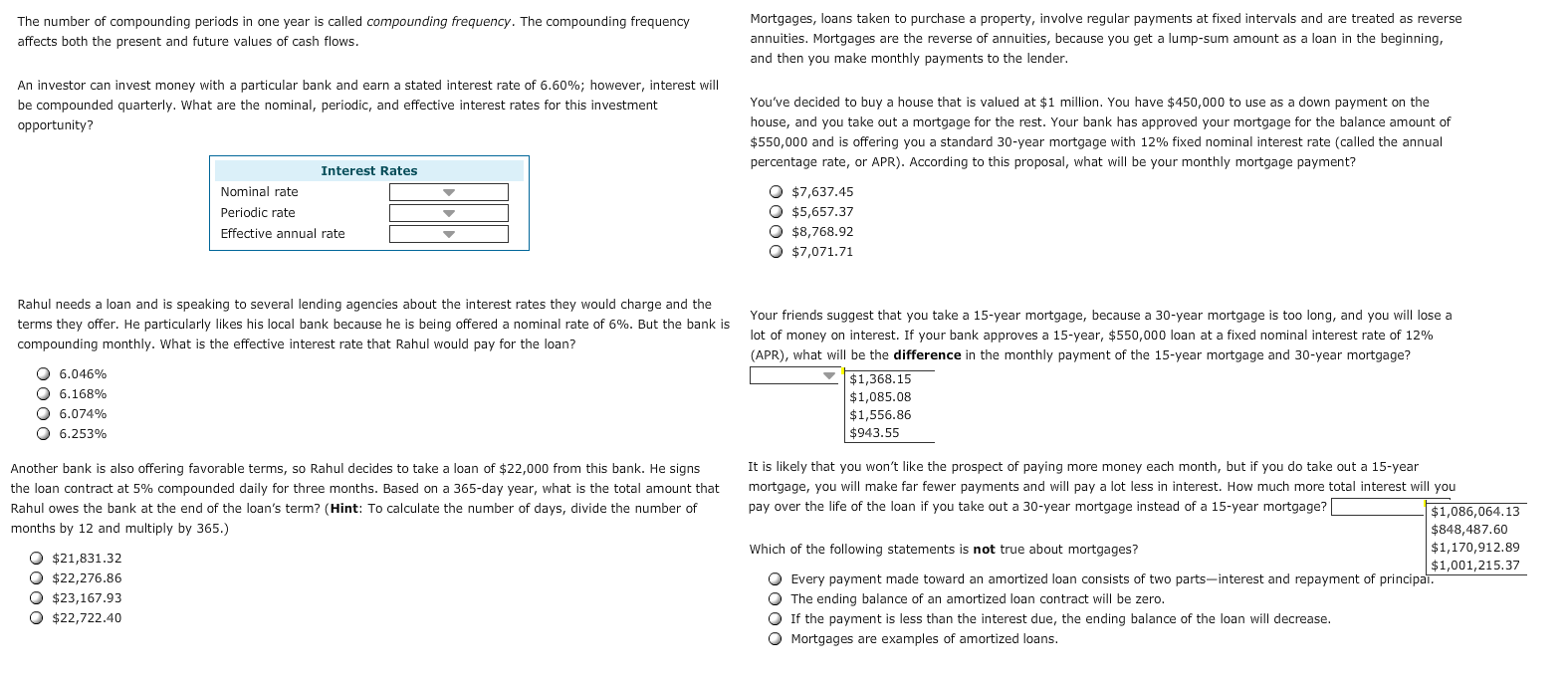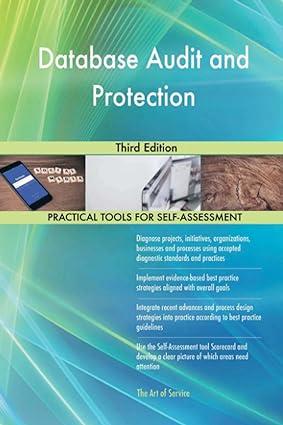
The number of compounding periods in one year is called compounding frequency. The compounding frequency affects both the present and future values of cash flows. An investor can invest money with a particular bank and earn a stated interest rate of 6.60%; however, interest will be compounded quarterly. What are the nominal, periodic, and effective interest rates for this investment opportunity? Rahul needs a loan and is speaking to several lending agencies about the interest rates they would charge and the terms they offer. He particularly likes his local bank because he is being offered a nominal rate of 6%. But the bank is compounding monthly. What is the effective interest rate that Rahul would pay for the loan? Another bank is also offering favorable terms, so Rahul decides to take a loan of $22,000 from this bank. He signs the loan contract at 5% compounded daily for three months. Based on a 365-day year, what is the total amount that Rahul owes the bank at the end of the loan's term? Mortgages, loans taken to purchase a property, involve regular payments at fixed intervals and are treated as reverse annuities. Mortgages are the reverse of annuities, because you get a lump-sum amount as a loan in the beginning, and then you make monthly payments to the lender. You've decided to buy a house that is valued at $1 million. You have $450,000 to use as a down payment on the house, and you take out a mortgage for the rest. Your bank has approved your mortgage for the balance amount of $550,000 and is offering you a standard 30-year mortgage with 12% fixed nominal interest rate (called the annual percentage rate, or APR). According to this proposal, what will be your monthly mortgage payment? Your friends suggest that you take a 15-year mortgage, because a 30-year mortgage is too long, and you will lose a lot of money on interest. If your bank approves a 15-year, $550,000 loan at a fixed nominal interest rate of 12% (APR), what will be the difference in the monthly payment of the 15-year mortgage and 30-year mortgage? It is likely that you won't like the prospect of paying more money each month, but if you do take out a 15-year mortgage, you will make far fewer payments and will pay a lot less in interest. How much more total interest will you pay over the life of the loan if you take out a 30-year mortgage instead of a 15-year mortgage? Which of the following statements is not true about mortgages







